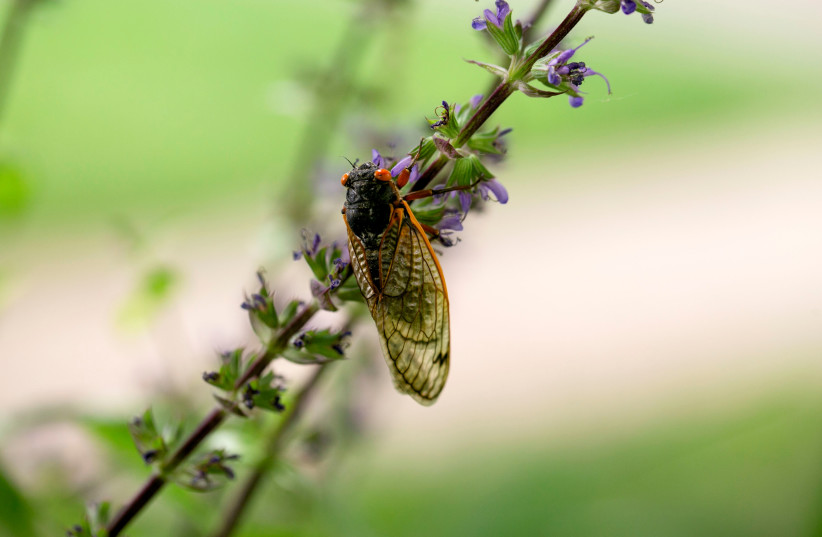Rare insect species with leaf-shaped genitals found in Uganda
Phlogis kibalensis, the new leafhopping discovery, is the first member of the rare genus to be stopped since 1969.

A new, extremely rare species of leafhopping insects with leaf-shaped genitals was discovered this week by a British scientist from the Anglia Ruskin University (ARU) in Cambridge, UK.
The species, named Phlogis kibalensis, was discovered during fieldwork in the tropical rainforests of western Uganda.
The scientist, Dr. Alvin Helden of ARU's Applied Ecology Research Group, found the species and published his discovery in the peer-reviewed scientific journal Zootaxa.
The 6.5 mm. insect has a metallic gloss over its rough body and has leaf-shaped male reproductive organs. It is common for most leafhoppers to have reproductive organs with unique shapes.
Male & Female Giant leaf Insect | Phylium Giganteum
The insect is part of the Phlogis genus and the first sighting of a member of the rare genus since 1969, when it was seen in Central African Republic.

Ugandan pygmies hunt for monkeys in in Bundibugyo district's Semiliki national park rain forest, west of the capital Kampala, August 8, 2006 (credit: JAMES AKENA/REUTERS)
Although Dr. Helden reportedly said the biology of the newfound species remains "almost completely unknown," Leafhoppers mainly feed on plant sap and are preyed on by invertebrates including spiders, beetles and parasitic wasps, as well as birds.
"Leafhoppers of this genus, and the wider tribe, are very unusual in appearance, and are rarely found," Dr. Helden said. "We know almost nothing about Phlogis kibalensis, the new species I found, including what plants it feeds on or its role in the local ecosystem."
The ARU scientist also warned some species in the area of Africa where Phlogis kibalensis was found might become extinct before they are ever discovered.
"Outside national parks and reserves, the amount of rainforest that has been cleared in the tropics is devastating," he said. "Rare species could be living anywhere, but deforestation means it is inevitable that we will be losing species before we have discovered them."
THIS PAGE WAS POSTED BY SPUTNIK ONE OF THE SPUTNIKS ORBIT BLOG

No comments:
Post a Comment
Stick to the subject, NO religion, or Party politics